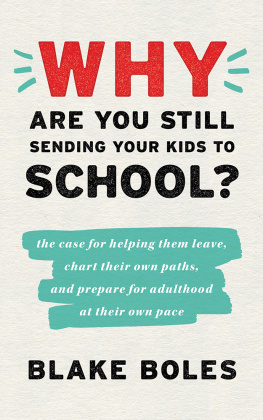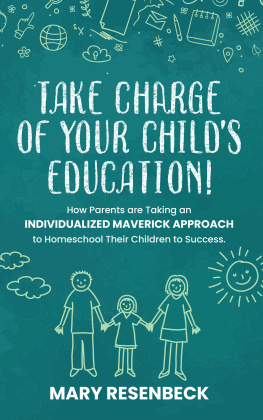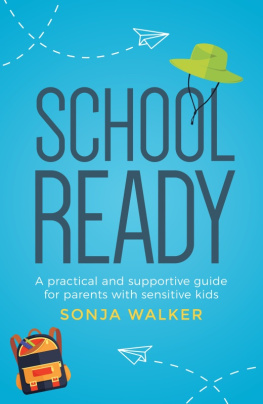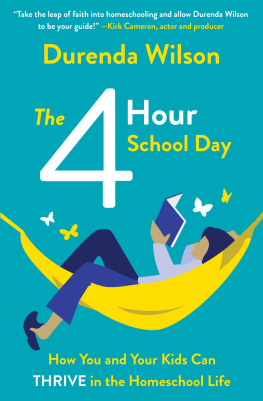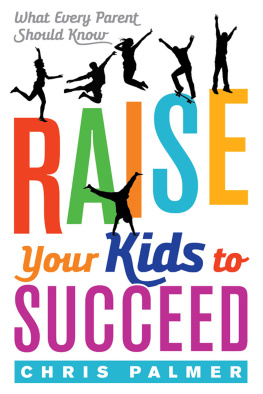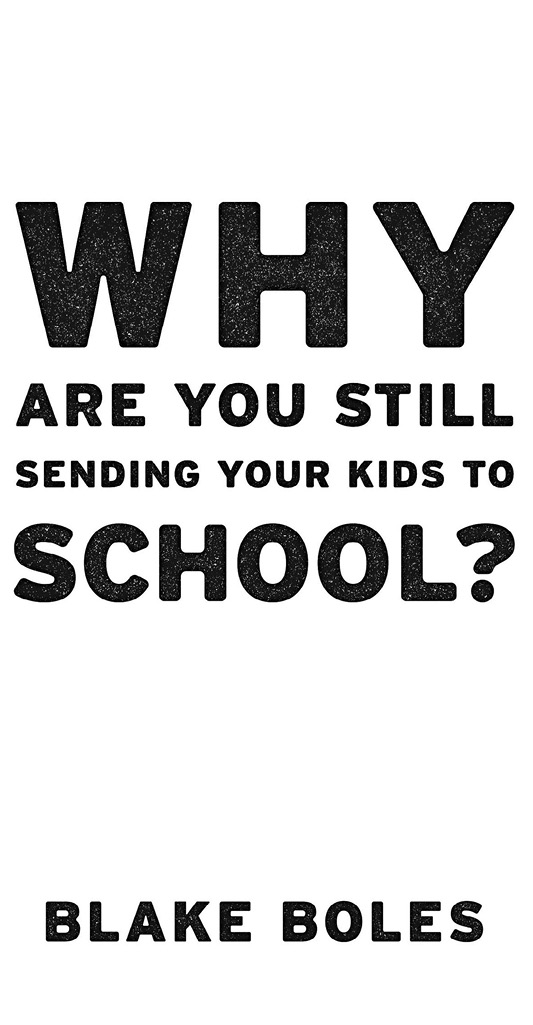Praise For
Why Are You Still Sending Your Kids to School?
This amazing book will give you the courage to think seriously about giving your child a more authentic, playful, and joyful learning journey. It cracked my imagination wide open and convinced me that something radically different is not only possible, its necessary. Everything you need to create a better future for your child, by making every day better right now, is inside these pages.
Jane M c Gonigal , New York Times bestselling author of Reality is Broken: Why Games Make Us Better and How They Can Change the World
Blake Boles is back with another provocative challenge to parents and guardians. If mainstream schooling isnt working for your child, maybe its time to consider the alternatives. Yes, your kids can still go to college, And, yes, they can have a conventionally successful career. However, once families step out of the traditional education box, they never know where the path might lead.
Daniel H. Pink , New York Times bestselling author of Drive , When , and A Whole New Mind
A thoughtful, powerful look at the generous act of trusting your kids enough to let them find their own educational rhythm. School and learning are different, and what we need for our future is a focus on more learning and less test-taking.
Seth Godin , author of Stop Stealing Dreams
There is so much goodness in this powerful, game-changing book! The message (like the title) is bold, and yet Blakes writing is always thoughtful and nuanced. He offers heaps of friendly guidance and lays out the relevant research with clarity and discernment. Without stooping to hyperbole or manipulation, Blake will have parents wondering why, indeed, they are still sending their kids to school. Better yet, hell help them drop unnecessary stress and worryand help their kids find meaningful, engaged, and joyful paths through life.
Grace Llewellyn , author of The Teenage Liberation Handbook
This book will push you, provoke you, and quite possibly inspire you to rethink every core assumption you hold about education. Be prepared to open your eyes to radically different ways of preparing kids for radically different forms of success.
Ted Dintersmith , author of What School Could Be and producer of Most Likely to Succeed
Kids dont need school; they need space to explore and time to think. This book will show you how to give your kids a real education by encouraging them to discover their interests instead of merely following someone elses directions.
Penelope Trunk , serial entrepreneur and writer @ penelopetrunk.com
Blake Boles offers a stimulating and important perspective on improving the well-being of young people everywhere.
Johann Hari , New York Times bestselling author of Chasing the Scream and Lost Connections
Blakes new book is a major contribution to the growing understanding of Self-Directed Education. It addresses, straight on, in thoughtful, respectful, and compelling ways the major concerns parents have when they think about the possibility of this approach to education for their children. If you care about children and the future, read this!
Peter Gray , Research Professor at Boston College and author of Free to Learn
Blake poses the $64,000 question and then draws a detailed roadmap for parents to follow, replete with testimonials from self-directed students, the researchers who have followed them, and the educators who have witnessed their journeys.
Pat Montgomery , founder of the Clonlara School and author of The School Thats Inside You
Blakes book is one I wish I had had on my shelf when I was leading my five kids to adulthood. He thoughtfully leads us to consider our preconceptions, beliefs, and aspirations and then gives us a buffet of options that can be paired with a particular teenagerrather than following culturally-derived, one-size-fits-all ideas about education and employment. I especially appreciated how he showed that young people can signal a readiness for employment with or without college. A great read and a must-have for the parents of teens.
Julie Bogart , author of The Brave Learner
Copyright 2020 Blake Boles
Published in the United States by Tells Peak Press, Loon Lake, CA
Cover and interior design by Zoe Norvell (zoenorvell.com)
First edition
ISBN: 978-0-9860119-7-9
E-book ISBN: 978-0-9860119-8-6
Library of Congress Control Number: 2020904729
For bulk orders and other inquiries, visit blakeboles.com
Also by Blake Boles:
The Art of Self-Directed Learning
Better Than College
College Without High School
Table of Contents
An Invitation to Connect
Over the years, readers have filled my inbox with kind notes, illuminating stories, and friendly challenges to my ideasall of which I appreciate.
If something in this book calls to you, I invite you to reach out. Find me at blakeboles.com.
Furthermore: if you have a project, venture, or wild idea that might benefit from my involvement, Im all ears. Collaborations are the stuff of life.
Introduction
Where Well Go in This Book
What do you do if school isnt a good fit for your child?
Some kids just dont mesh with school in big, obvious ways: theyre viciously bullied or repeatedly harassed. Theyre threatened with suspension. They battle you over homework every night.
Other kids suffer in less visible ways. They sit, bored out of their minds, hour after hour, week after week. They spiral quietly into depression. They start using legal or illegal substances to make it through the day.
What do you do when you see your childs spark fading? What do you do when you witness a creeping anxiety in the brave child you once knew? What do you do when you run out of reasonable explanations for this continued suffering?
People are complex. You may never figure out exactly why school stopped working for your kid, but you can reasonably assume that schoolnot your kidis a large part of the problem.
This is not a book about how to reform the education system. While that subject is vitally important, reform is not something for which you can afford to wait. Nor is this a book that argues for tearing down public schools, which provide certain essential services to our society and genuinely work for some kids.
This is a practical book about what you can do, beginning today, if you believe that mainstream schools, which I call conventional schools, may be a bad fit for your child.
Attention is a precious resource, and you may be wondering if this book is worth your time. Allow me to provide a brief tour of the ideas and arguments youll encounter in the pages ahead.
In this Introduction, I first address the issue of privilege, explain how conventional schooling transformed into an institution that can harm kids, and introduce some of my colleagues in the hope that you will not write me off as an isolated crank.
In Chapter 1, I take you on a tour of the wide world of radical alternatives to school. Its an incredibly exciting time to be an outside-the-box learner in North America where we enjoy a thriving ecosystem of alternatives: private and public, school-based and home-based. This ecosystem is so dynamic, in fact, that it sometimes feels like the Wild West. Some alternatives might inspire you, while others could send you screaming in the opposite direction. Some cities and towns are packed with great options, while others are deserts. Homeschooling will occupy much of our discussion; Ill encourage you to think of it as a handy meta-tool instead of a specific method of educating (i.e., doing school at home). Homeschooling is a legal, viable option in all 50 states of the U.S., in all 10 provinces of Canada, as well as in the United Kingdom, Australia, New Zealand, and some European countries. If you live outside these areas, your situation might be trickier, but the large-scale trend is undoubtedly positive. Today you enjoy more options for thriving outside of conventional school than ever before.

